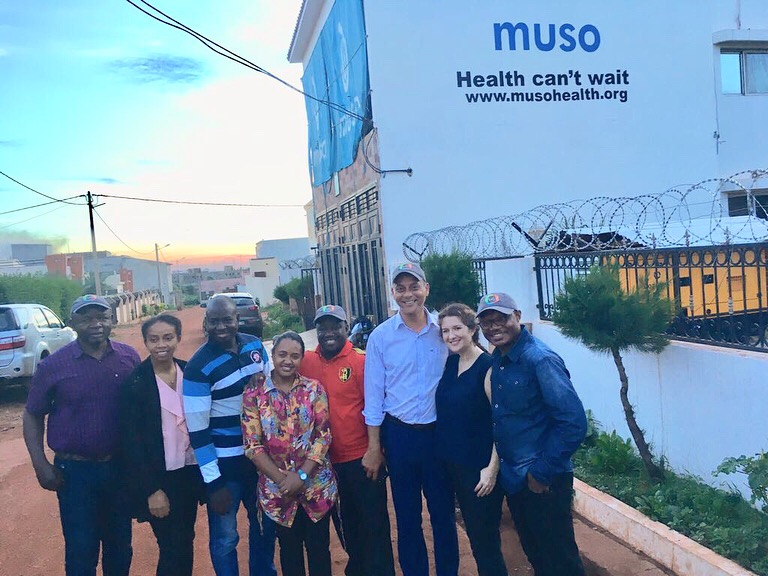20 Sep Partnering To Improve Community Health Worldwide
For nearly five years, PIVOT has been strengthening the public health system at all levels of care in Ifanadiana District, Madagascar. With over 70% of the population living more than a five-kilometer walk from the nearest primary care center, our work includes a specific focus on strengthening health services in rural communities to reduce childhood mortality.
As our team looks ahead to 2019 with a commitment to continue improving health outcomes at community level, we turned to two partner organizations from the Community Health Impact Coalition (CHIC) who have been running high-performance programs in order to exchange experiences and learn lessons from their successes.
In September, we visited our partners, Muso, in Mali, and Integrate Health, in Togo. Those of us who made the trip play a role in the implementation and oversight of programmatic activities.
Dr. Ali Ouenzar (National Director), Justin Haruna (Director of Medical Programs), Hanitriniaina “Feno” Rafenoarimalala (Manager of Community Health), and Bénédicte Razafinjato (Manager of Monitoring and Evaluation). It was inspiring. For Feno and Benedicte, this was the first opportunity to travel outside Madagascar and a reminder that we are part of a much larger movement, with partners as committed as we are to reach everyone in need, everywhere.
We saw first-hand the power of enhanced proactive case-finding, where Community Health Workers (CHWs) go door to door to find sick patients in their homes. We also observed the potential of enhanced 360-degree supervision and the results of increasingly professionalized and compensated CHWs.
“The CHWs in Mali and Togo are incredibly motivated and proud of their work,” said Feno. “I was so inspired by Yaya, one CHW I had the opportunity to observe, who even brings her youngest child with her to work. It shows just how committed she is to caring for her fellow community members.”

Observing the use of mobile technology by CHWs was another opportunity for us to deepen our understanding of an initiative PIVOT plans to launch in 2019. We were fortunate to see the technologies of Medic Mobile in use by both Muso and Integrate Health. Medic Mobile’s applications work to provide decision support, enhance task prioritization, and improve supervision for CHWs. Our peer organizations provided valuable insights to aid in PIVOT’s endeavor to integrate the service at the community level in the coming year.
One key difference we discovered between PIVOT’s community health program as compared with those of our peers is the lack of road access and extensive remoteness of the communities we serve. Geographic barriers are a primary factor in the Ifanadiana District population’s ability and/or likelihood to seek care.
Overall, the exchange of knowledge and experience throughout the trip was invaluable, as we all share a vision for stronger healthcare delivery at the community level to reduce needless suffering worldwide. As we undergo our planning process for next year, we are grateful to have such amazing partners, critical for informing our community health approach moving forward.
”Our trip to Mali and Togo was an incredible opportunity to connect with our partners,” says Medical Director Justin Haruna of the experience. “I am confident that our learnings will strengthen our community strategy in 2019, enhance the work of our Community Health Workers, and ultimately make a significant contribution to the reduction of population morbidity and mortality in Ifanadiana District, especially among children under five.”
We extend our sincerest gratitude to our hosts and partners at Muso and Integrate Health, and look forward to the opportunity to welcome you in Ifanadiana District in the future!






